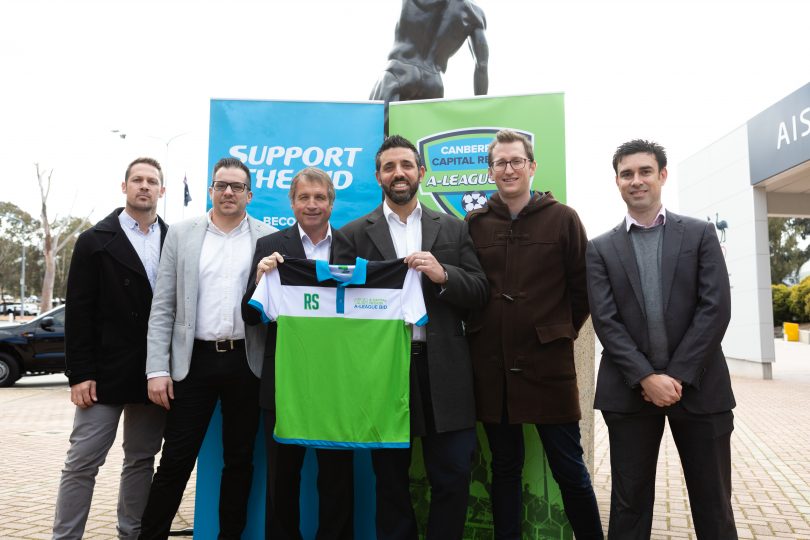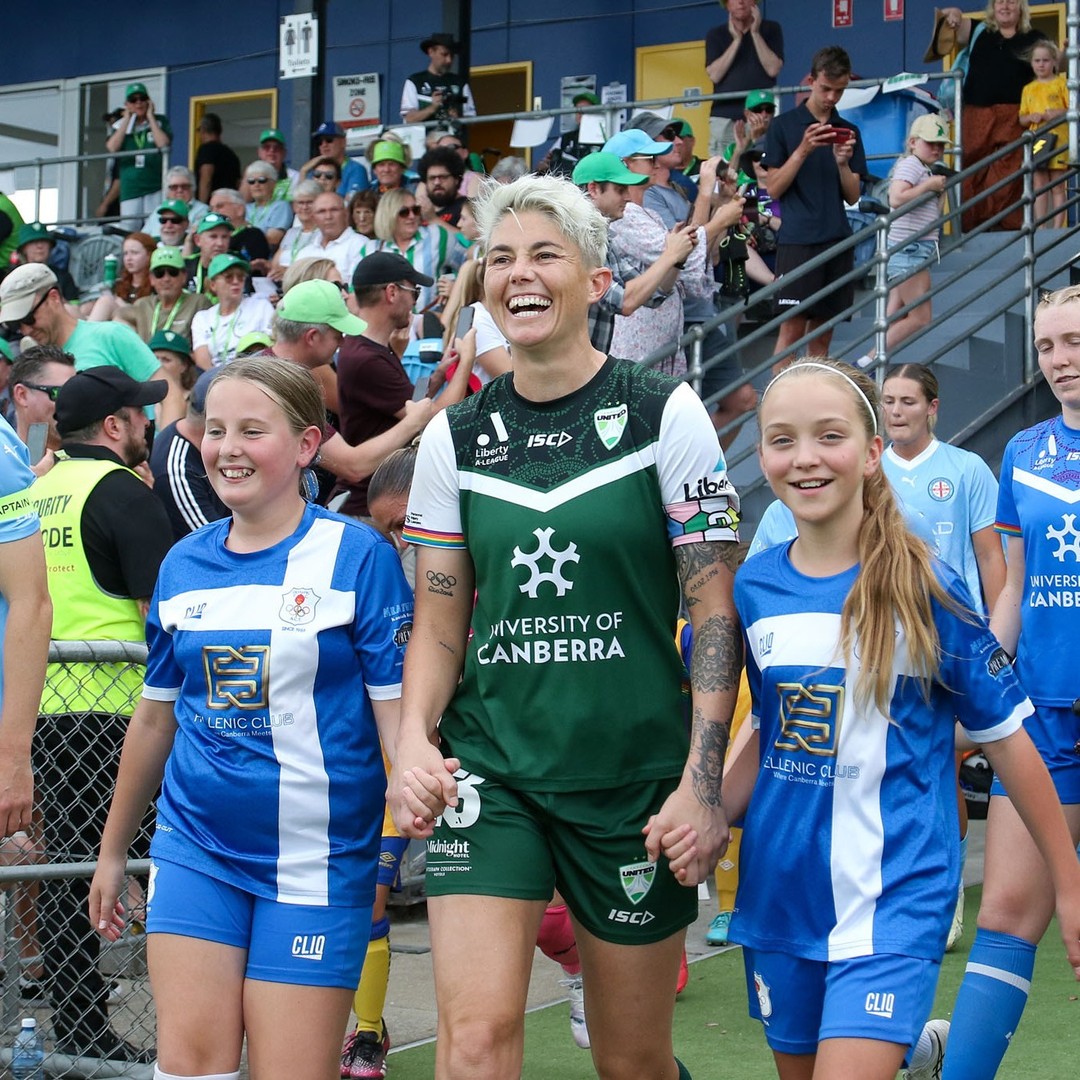
The Canberra A-League bid team in October 2018 – but the dream has been around much longer than that. Photo: Supplied.
Having been left at the altar a number of times since 2008, the proponents for a Canberra team in the A-League Men competition remain remarkably upbeat.
There’s a sense of déjà vu in last week’s decision by the Australian Professional Leagues to delay Canberra’s potential entry to the A-League Men competition until the 2025-26 season.
Canberra has been identified as the preferred bidder for the 14th team, with Auckland entering the A-League in the upcoming season.
It’s as close as Canberra has ever been to securing a berth, although the city already boasts a side in the A-League Women comp.
By my count, since 2008, there have been five A-League for Canberra bidding groups launching at least seven attempts to join the competition.
The 2008 A-League for Canberra bidding team launched three unsuccessful attempts with Football Federation Australia to join the league before being wound up in 2012.
Undaunted by the repeated rejections, a succession of unsuccessful attempts has occurred since then. Finally, the preferred bidder status was secured.
The catch is and always has been, is there enough financial support in the region to ensure sustainability?
The financial requirement this time around is a $25 million franchise fee, and that’s just the start – the cost of running the team is extra.
Speculation has swept the city over the past 12 months over the identity of potential backers. English football clubs keen to have a footprint in Australia are a recurring theme.
Not a week has gone by without a rumour of an imminent announcement only for it to disappear as quickly as it appeared.
There is also the additional financial requirement associated with running A-League Men, with the Canberra bid team’s Michael Caggiano committed to taking over the Canberra United women’s operations as well.
It’s a significant commitment.
Rather than viewing the decision to delay Canberra’s potential entry until the 2025-26 season as a setback, the bid team believes it will give them time to properly prepare for entry into the A-League Men competition.

Michelle Heyman with two young Canberra United fans: when will a Canberra men’s team be in the top league? Photo: Save Canberra United Facebook.
The uncertainty has created issues for the Canberra United women’s team, resulting in a financial lifeline from the ACT Government.
I have no doubt there are businesses in Canberra that don’t financially back sport at the moment but would be willing to support a football team.
The key to unlocking that support is securing a team in the first instance.
The optimism of the proponents for the Canberra A-License, though, remains undaunted.



















